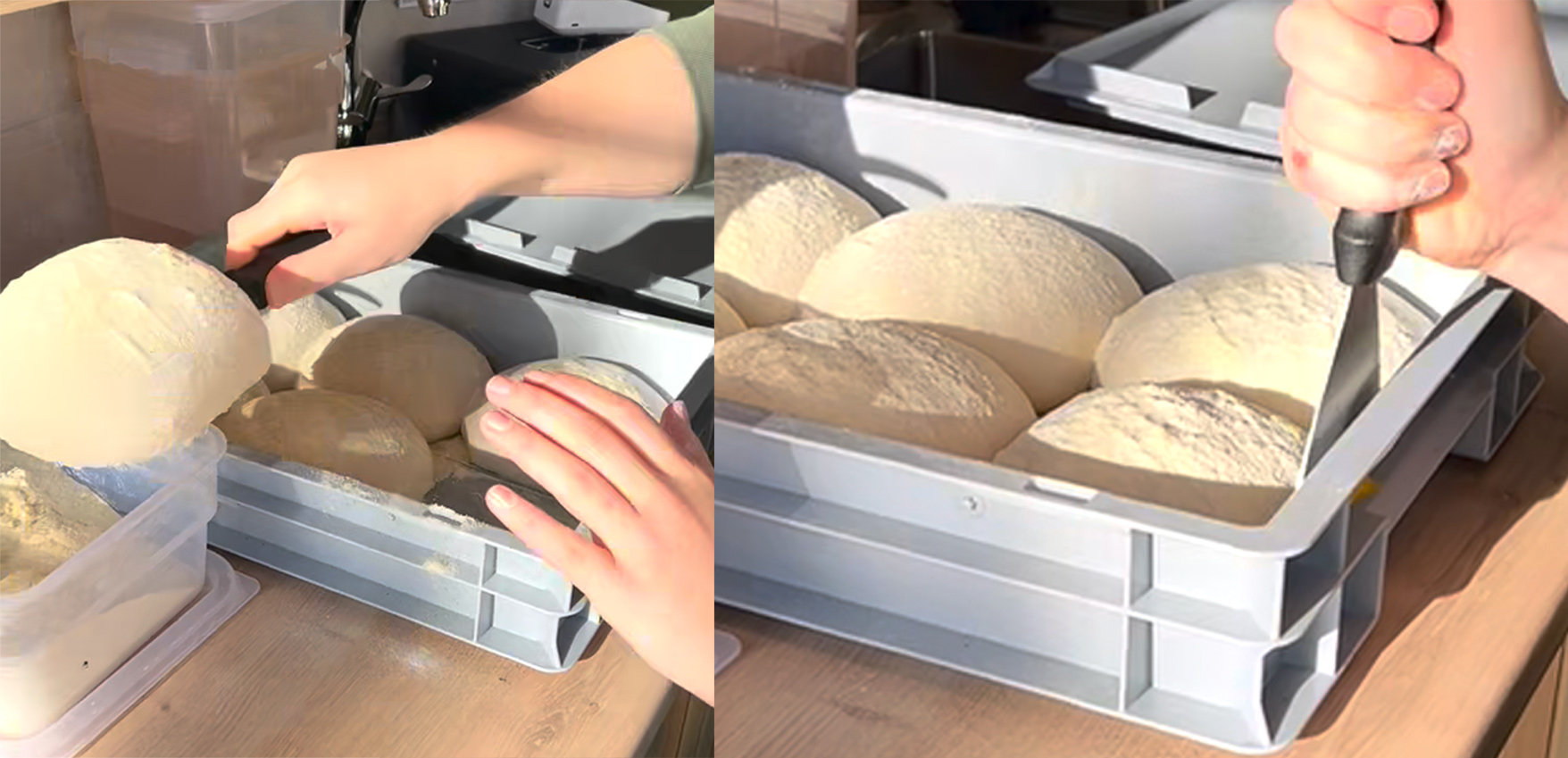Understanding Pizza Dough Proofing

Pizza dough proofing is a critical step in the pizza-making journey where the dough, once divided and shaped into balls, is allowed to rise. This stage is crucial as it enables the yeast within the dough to activate and ferment. The fermentation process not only enhances the overall flavour and aroma of the pizza crust but also impacts its texture.
During proofing, the yeast consumes sugar in the dough, producing carbon dioxide gas. This gas is trapped within the dough, forming tiny bubbles that contribute to the dough’s expansion. When the dough is eventually baked, these bubbles become airy pockets, giving the crust its characteristic light and fluffy texture. This transformation is essential for achieving the perfect pizza crust that's both delicious and visually appealing.
Here at Caterbox, we specialise in catering equipment and food storage solutions. Over the years, we have seen more and more pizza companies purchasing our food grade HDPP 400x300mm & 600x400mm Pizza Dough Proofing Trays, available with or without lids.
Making the perfect pizza starts with preparation; the dough proofing stage is vital for producing epic pizzas. In our blog, you will see how one of our customers, Saddle Up n Dough, has fared using our pizza dough proofing boxes. We will also dive deeper into what makes the best pizza preparation and why it is important to use a Pizza Dough Proofing Tray when making large batches of pizza, whether you are running your own pizza company or have a pizza oven in your garden at home.
What is a Pizza Dough Proof Tray?

A Pizza Dough Proof Tray is a shallow, often rectangular (600x400mm or 400x300mm) Euro Container Box used to hold pizza dough as it proofs. Made from food-safe HDPP plastic, these trays are designed to provide the best environment for dough to rise. Storing your dough in a proofing tray enhances the fermentation process, leading to a better texture and flavour in the final product.
Why Use a Pizza Dough Proof Tray?
- Uniformity in Proofing: Dough proof trays ensure that each ball of dough proofs equally. This is essential for achieving consistent thickness and texture in pizzas. Uniform proofing also means that the heat distribution is even when cooking, preventing undercooked spots from occurring.
- Space Efficiency: Especially in a commercial kitchen, space is gold. Saddle Up n Dough is a mobile pizza company operating from a horsebox, so they are pros when it comes to space efficiency. These stacking trays make easy work of proofing dough and can be stored easily after the event. They are perfect for maximising vertical space. Loved and used by home chefs, these trays neatly fit into refrigerators or on counters, keeping the kitchen organised and the pizza dough safely contained.
- Hygienic and Easy to Clean: Compared to other proofing methods, like using individual bowls or damp cloths, dough proof trays are a breeze to clean. Caterbox's Plastic stacking commercial trays are dishwasher safe and manufactured using plastics that resist odours and stains. Say goodbye to the hassle and constant laundry requirement of flour-dusted towels and hello to a more hygienic process.
- Enhanced Dough Quality: Proof trays often come with lids or can be tightly sealed. Caterbox also offers attached lid containers with click-closed lids to help seal the container during the proofing stage. These Euro Size Pizza Boxes are stackable, and lids stay attached to the boxes so they don't get lost. This feature helps in maintaining the moisture content of the dough, preventing the surface from drying out and becoming crusty.
- Versatility: While primarily used for pizza, these trays are not limited to it. They can be used for proofing bread rolls, focaccia, and other types of dough or general food storage. Available to purchase with or without lids. Why not get the lids branded with your company logo?
Tips for Using Your Pizza Dough Proof Tray
- Lightly Oil the Tray: Before placing your dough balls on the tray, lightly grease it to prevent sticking.
- Give Space Between Dough Balls: Ensure each piece of dough has enough room to expand. Overcrowding can lead to uneven proofing.
- Monitor Temperature and Humidity: Dough proofing is highly dependent on environmental factors. At higher temperatures, yeast activity accelerates, leading to a quicker release of carbon dioxide. Lower temperatures slow down the fermentation process, reducing the rate at which carbon dioxide is released.


